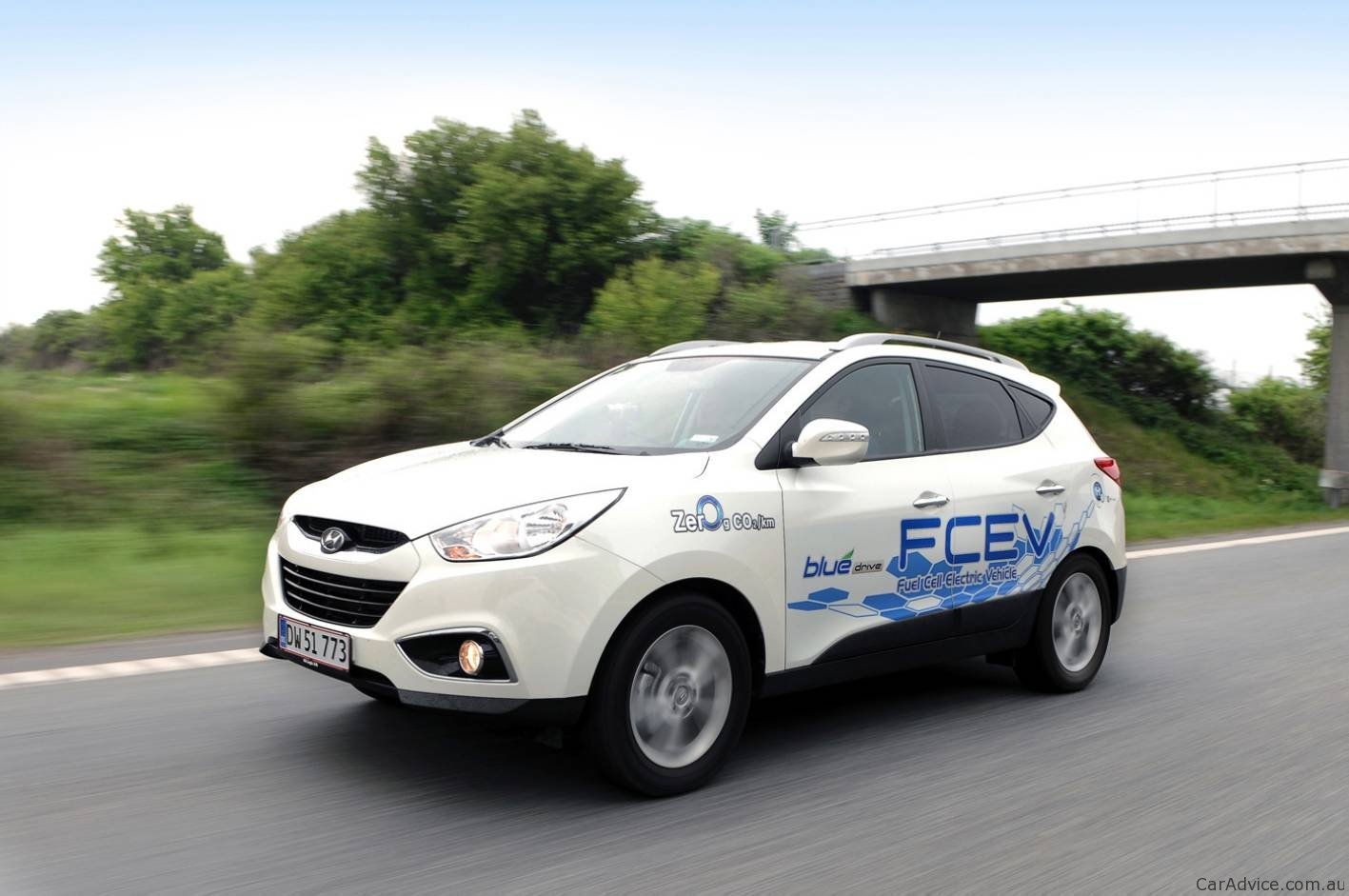We take a look at Fuel Cell vehicles sales performance in 2016, with 2.312 units registered in 2016, up 225%, FCEV's are more or less at the the same point that EV's were in 2009, so if they follow the same growth curve as plug-ins, we should see this technology reach 100.000 sales in 2019. Or not. Any bets?
But let's look at the individual performances of the three models currently on sale:

Toyota Mirai - 2.039 Mirai were registered in 2016, a big step above the 498 of the previous year, with Japan and the USA representing 85% of the sales. Will it reach 10.000 units this year?

Hyundai ix35/Tucson FCEV - Numbers of the Korean Fuel Cell dropped regarding 2015, with 160 units being registered in 2016, versus 213 in the previous year. A discontinued model in its ICE form, don't expect much from this one in 2017.
Honda Clarity FCEV - 113 units were registered in its landing year, with 2017 looking to reach some 2.000 units by year end. But the interesting thing with this model is that later on, it will be the first model to be available as FCEV, PHEV and BEV. It will be up to the consumer to decide what to pick, a similar experience is being done by Hyundai with the Ioniq and guess what buyers are preferring...

This technology with a 10Eur/kg as of now, it is going nowhere , unless high incentive spending is added to the mix. Expecting 10.000 sales in 2017 is hoping for a dealer arrangement of 2 demo vehicles minimum.
ReplyDeleteBetter alternative is a BEV with a 2Eur/100km running costs.
Well.. 2Eur/100km for batteries, but a Tesla costs 100,000€, a Fuel cell car only 60,000€. You have to drive 500,000 km with your battery car before it becomes economically advantageous to use batteries...
ReplyDeleteAnd by the way... you have to hope that your battery will survive long enough...
And by the way... you have to accept to waste 30 mn each time you need to recharge your battery (it's only 3 mn with a fuel cell car).
And by the way (that's the last one, i promise;-)) ... you'd better drive in California than in Norway, cuz in the middle of the winter, your "500 km" range suddenly turn to be less than 300km...
Of course, if you drive few km in town, all these issues are not critical, and it's worth buying a Nissan Leaf or a Renault Zoe rather than a big H2 car.
I believe FCEV and EV are just complementary solutions: EV in the town, FCEV for long distance trips. So let's just support both.
Well there are also 65k€ Teslas (http://insideevs.com/tesla-slashes-7000-euros-model-s-price-germany/) and the Toyota and Honda FCEV prices are set accordingly to not further scare customers away. They cost much more at the current production volume.
ReplyDeleteI once was concerned about battery degradation but now I am one out of many with 200,000+ km on the original battery with no significant (6%) decreased range. With another five years warranty on the battery I can sleep well at night (while my car charges all by it self - no need to visit any kind of "station") or look forward to the day/year I can replace the battery at a much lower cost and revitalize my car with 50% more range than when it left the factory.
Just for the record: I highly welcome FCEVs but they still are far away from being attractive
Mmmm...So many kms and so little degradation...Mmmm...
DeleteTesla, right? ;)